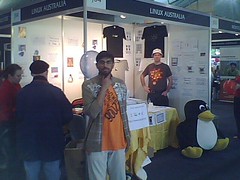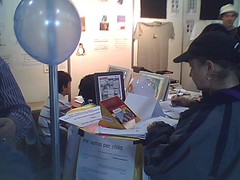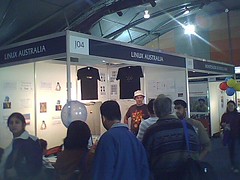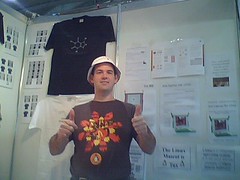It is with a little sadness, but a lot of pride that I announce my retirement from GovHack, at least retirement from the organising team 🙂 It has been an incredible journey with a lot of amazing people along the way and I will continue to be it’s biggest fan and support. I look forward to actually competing in future GovHacks and just joining in the community a little more than is possible when you are running around organising things! I think GovHack has grown up and started to walk, so as any responsible parent, I want to give it space to grow and evolve with the incredible people at the helm, and the new people getting involved.
Just quickly, it might be worth reflecting on the history. The first “GovHack” event was a wonderfully run hackathon by John Allsopp and Web Directions as part of the Gov 2.0 Taskforce program in 2009. It was small with about 40 or so people, but extremely influential and groundbreaking in bringing government and community together in Australia, and I want to thank John for his work on this. You rock! I should also acknowledge the Gov 2.0 Taskforce for funding the initiative, Senator at the time Kate Lundy for participating and giving it some political imprimatur, and early public servants who took a risk to explore new models of openness and collaboration such as Aus Gov CTO John Sheridan. A lot of things came together to create an environment in which community and government could work together better.
Over the subsequent couple of years there were heaps of “apps” competitions run by government and industry. On the one hand it was great to see experimentation however, unfortunately, several events did silly things like suing developers for copyright infringement, including NDAs for participation, or setting actual work for development rather than experimentation (which arguably amounts to just getting free labour). I could see the tech community, my people, starting to disengage and become entirely and understandably cynical of engaging with government. This would be a disastrous outcome because government need geeks. The instincts, skills and energy of the tech community can help reinvent the future of government so I wanted to right this wrong.
In 2012 I pulled together a small group of awesome people. Some from that first GovHack event, some from BarCamp, some I just knew and we asked John if we could use the name (thank you again John!) and launched a voluntary, community run, annual and fun hackathon, by hackers for hackers (and if you are concerned by that term, please check out what a hacker is). We knew if we did something awesome, it would build the community up, encourage governments to open data, show off our awesome technical community, and provide a way to explore tricky problems in new and interesting ways. But we had to make is an awesome event for people to participate in.
It worked.
It has been wonderful to see GovHack grow from such humble origins to the behemoth it is today, whilst also staying true to the original purpose, and true to the community it serves. In 2016 (for which I was on maternity leave) there were over 3000 participants in 40 locations across two countries with active participation by Federal, State/Territory and Local Governments. There are always growing pains, but the integrity of the event and commitment to community continues to be a huge part of the success of the event.
In 2015 I stepped back from the lead role onto the general committee, and Geoff Mason did a brilliant job as Head Cat Herder! In 2016 I was on maternity leave and watched from a distance as the team and event continued to evolve and grow under the leadership of Richard Tubb. I feel now that it has its own momentum, strong leadership, an amazing community of volunteers and participation and can continue to blossom. This is a huge credit to all the people involved, to the dedicated national organisers over the years, to the local organisers across Australia and New Zealand, and of course, to all the community who have grown around it.
A few days ago, a woman came up to me at linux.conf.au and told me about how she had come to Australia not knowing anyone, and gone to GovHack after seeing it advertised at her university, and she made all her friends and relationships there and is so extremely happy. It made me teary, but also was a timely reminder. Our community is amazing. And initiatives like GovHack can be great enablers for our community, for new people to meet, build new communities, and be supported to rock. So we need to always remember that the projects are only as important as how much they help our community.
I continue to be one of GovHack’s biggest fans. I look forward to competing this year and seeing where current and future leadership takes the event and they have my full support and confidence. I will be looking for my next community startup after I finish writing my book (hopefully due mid year :)).
If you love GovHack and want to help, please volunteer for 2017, consider joining the leadership, or just come along for fun. If you don’t know what GovHack is, I’ll see you there!



